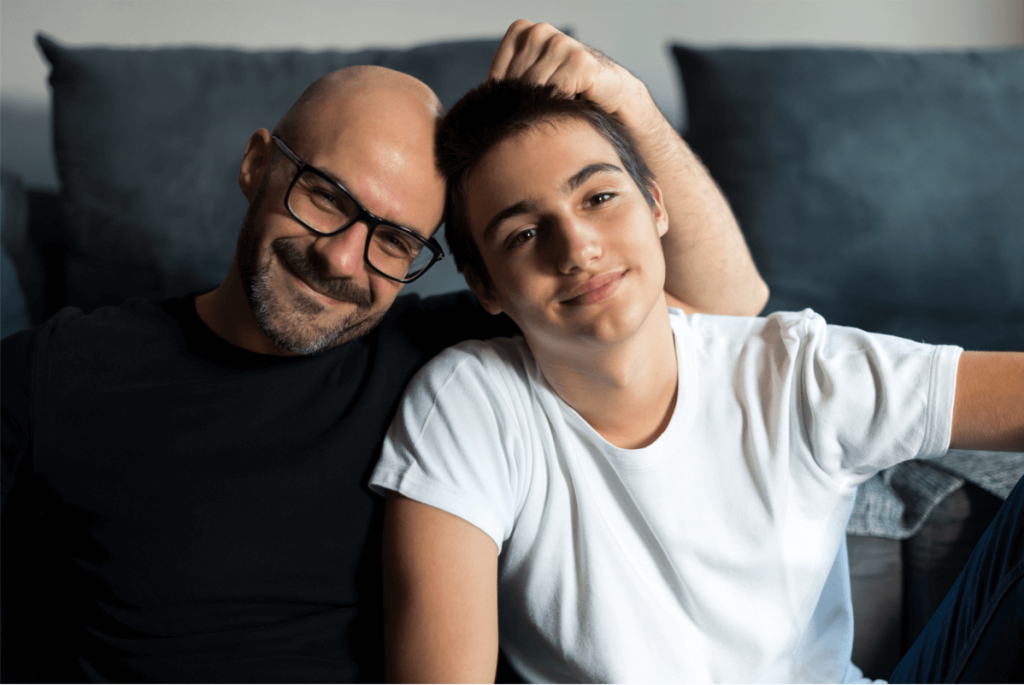My 17-year-old son Jordan is a wonderful teenager. He’s high energy, loves a laugh, is caring and cheeky. He does kickboxing, swims and used to play rugby. Sport is a great boost for his self-esteem and an outlet for his high energy levels – particularly since he has ADHD and severe dyslexia.
With the right environment and support he can really thrive – but we recently faced some complications in creating a good environment at school for him.
Jordan recently transferred from a specialist school to a mainstream school. In hindsight, there is a lot that should have been done differently to help this transition – both from me as a parent and also from both schools.
It’s always hard to know which school is best for your child, but it’s really up to every parent. Jordan moved school because his specialist school only went up to Year 11.
I think the poor transition between schools was a big part of why Jordan acted out and became disruptive at his new school. He was mucking around a bit and broke some school rules, despite having received a warning from his teacher. Next thing I got a call out of the blue that Jordan had been suspended for a few days and they were considering expelling him.
This was the first time I had had contact from his current school, so it took me by surprise. I was upset because there had been no discussion or gradual escalation related to Jordan’s behaviour.
Something about this suspension and expulsion threat didn’t seem right to me and I had a gut feeling that they couldn’t do this without following some sort of procedure.
A friend told me about ACD and I called their Support Line. I spoke to a Support Advisor who did two amazing things for my family.
Firstly, she empathised with me and justified my concerns. It was a relief to have that validated by someone who knew the school system and it helped me talk more openly about my son.
Secondly, she gave me practical information about my son’s rights and told me what the school’s obligations were. I was glad my instincts had been right but I was so upset that the school clearly wasn’t following procedure.
Because I had now done my homework, I felt confident in my rights and okay to go and speak with the Principal. In the meeting, I realised how little the Principal knew about my son. She didn’t even know Jordan was dyslexic!
I was surprised that there hadn’t been a better handover between the two schools and that the new school was considering expelling him without knowing how his disability may have affected his behaviour.
Sitting in the Principal’s office, I also realised how confronting and different this school environment must seem to Jordan. It felt very corporate and there was nothing inviting in the room – no windows, no paintings on the wall, nothing stimulating. This was a huge change in setting from his old school.
I realised sitting there with the Principal how it may have affected his behavior – he would have struggled to concentrate, sit still, listen and absorb information because of the uninviting environment.
After hearing that I’d sought advice on my son’s situation, and hearing more detail about what effect his ADHD would’ve had on his behaviour, the Principal said the school would not be moving forward with expulsion – and would work to better support Jordan with reasonable adjustments to help his learning needs.
With good outcomes now in place I have a few pieces of advice for others, which I wish I’d known sooner.
Firstly, if your child is transitioning between schools, make sure both schools communicate with each other and have the proper plans, meetings and systems in place to make it as seamless as possible. It still baffles me that Jordan’s current school didn’t know about his dyslexia.
Meetings between the teachers, executive staff, myself as a parent, and any therapists should have happened, and included discussions around setting up a Behaviour Support Plan (BSP) and Student Support Group meetings (SSGs).
The entire school system needs to work better to provide reasonable adjustments and awareness of children’s disabilities and potential triggers. I just thought the schools would arrange things to make Jordan’s transition easy. I now realise I needed to ask questions and work with them to make it smoother.
Secondly, arm yourself with the skills and knowledge to help your child before any issues occur. I honestly just thought the school was going to do what it wanted and that I didn’t get a say – but knowing my rights made the difference between doing nothing and advocating for my son.
Now, we have much better systems in place to help Jordan. He receives regular counselling sessions through school and has an Individual Education Plan (IEP).
He has supports in place to help with his dyslexia like special pens, translated material and more time to do exams. We’re still working on scheduling his SSG meetings, but it’s a start.
Right now, life is feeling pretty normal. We’re at the tail-end of high school so Jordan doesn’t have too much longer until graduation. I’m looking forward to see what he’ll do in the future – without the threat of expulsion looming over him.
Read more Real stories
